#mount pelion
Explore tagged Tumblr posts
Text
WARNING: Do NOT read my tags if you’re worried about 3.1 spoilers.
Drew HSR Achilles and Patroclus. :P

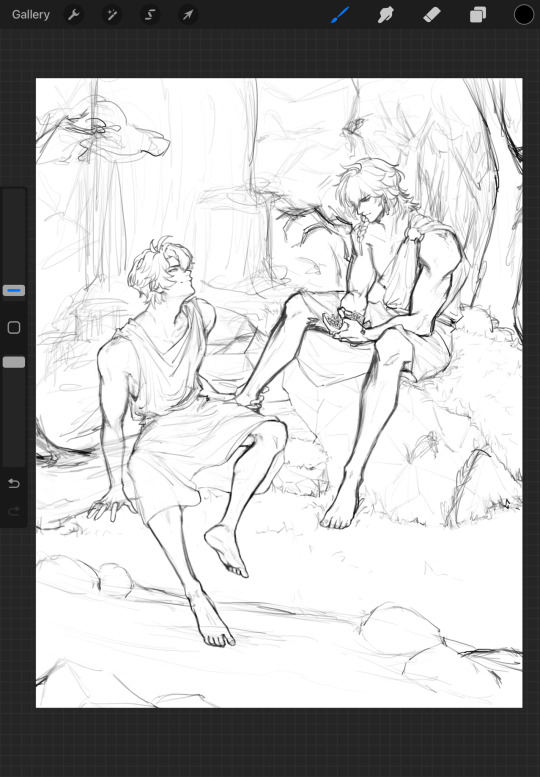
Someone pls tell me how to pose Phainon’s foot. I kid you not, I spent at least 3 hours on that foot and it still doesn’t look right. TAT (Mydei’s back too.)
Edit (3/30): To the person who tagged #op this is gorgeous, YOU’RE gorgeous.
Also, I’m glad I could contribute to the list of fanart that are persuading you to join the ship. We’re a happy and healthy community thriving off the waves of copium. Come join. :D
#phaidei#phainon#hsr mydei#mydei#hsr fanart#i hate anatomy#so badly#why can’t people be blobs?#the song of achilles#mount Pelion#imma draw angst next#their relationship is so interesting#while Mydei may have the Achilles Heel#I feel like Phainon is closer to Achilles story wise#but I haven’t finished 3.1 yet; so#we’ll see
1K notes
·
View notes
Text

Days on Pelion
70 notes
·
View notes
Text
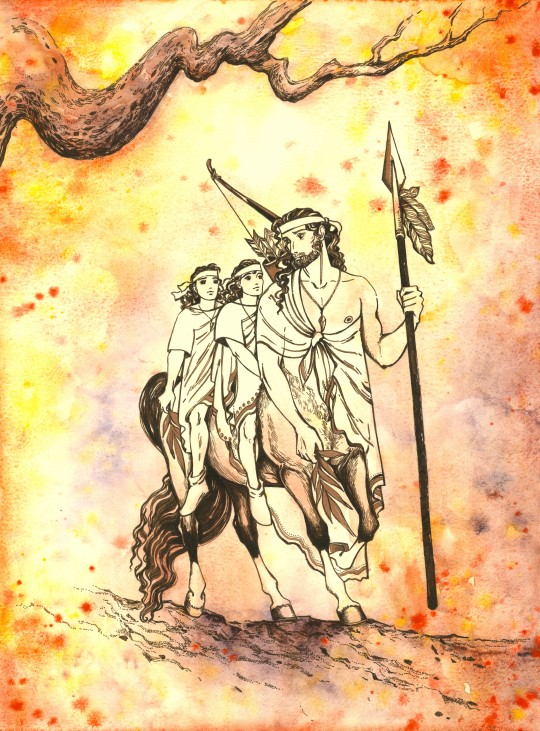
On the Mount Pelion (2023)
The centaur Chiron and his 'students' Achilles and Patroclus return after a long day of training and learning to heal.
#centaur#centaur chiron#chiron#patrochilles#patroclus#achilles#mount pelion#ancient greek mythology#marysmirages#mycenaean greece#homer's iliad#the iliad
580 notes
·
View notes
Photo

Spring comes to an olive grove in Mount Pelion. Photo by Eleni Zermpini.
#greece#photography#naturecore#flowers#landscape#spring#nature#earth#pelion#mount pelion#magnesia#thessaly#mainland
40 notes
·
View notes
Text
Thetis: Why do people think I have distaste for you, Patroclus?
Patroclus: Because it was easiest to paint you that way. You’re a Nymph who was bound to mate with a mortal man. It was easy for them to spin that into hatred for me, hatred for humans.
Thetis: They have me mistaken. I love most humans. Some of you do some… questionable things, but then again, so do the gods.
Achilles: Everyone’s kind of messed up in their own way, aren’t we?
Patroclus: it’s what makes us unique. Even so, I thank you Thetis, for being supportive of your son and I.
Thetis: You mellow him out. You help him. How could I not support you?
*we love supportive mom Thetis here.*
#patrochilles#achilles#patroclus#patroklus#greek mythology#achillesandpatroclus#tsoa achilles#ancient greek#historical inaccuracies#quotes#madeline miller#the song of achilles#tsoa spoilers#inaccurate greek mythology#achilles and his grief#chiron#mount pelion#tsoa
253 notes
·
View notes
Photo
I dug gold
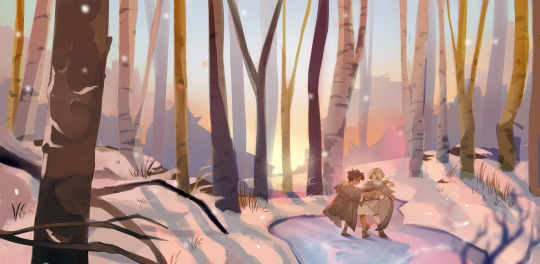
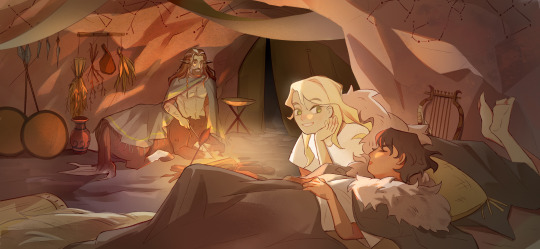
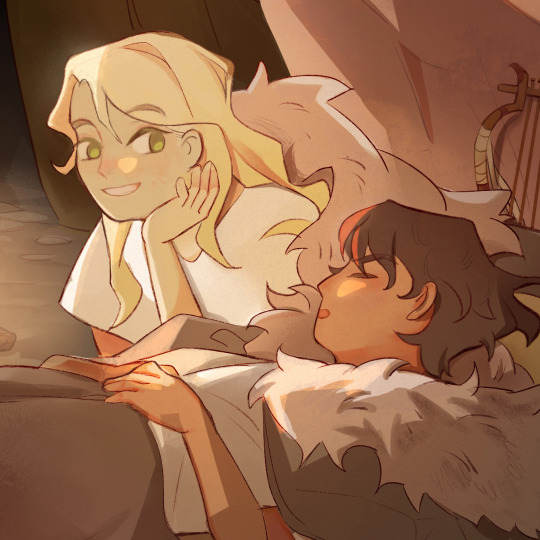

❄️ Winter day at Pelion
5K notes
·
View notes
Text

Το τρένο του Πηλίου σε Πασχαλινό ταξίδι στις Μηλιές...
https://gegonota.news/2025/04/02/treno-tou-piliou-paschalino-taxidi-stis-milies/
1 note
·
View note
Text
Mrs Page. Letter for letter, but that the name of Page and Ford differs! To thy great comfort in this mystery of ill opinions, here's the twin-brother of thy letter: but let thine inherit first; for, I protest, mine never shall. I warrant he hath a thousand is these letters, writ with blank space for different names, – sure, more, – and these are of the second edition: he will print them, out of doubt; for he cares not what he puts into the press, when he would put us two. I had rather be a giantess, and lie under Mount Pelion. Well, I will find you twenty lascivious turtles ere one chaste man.

William Shakespeare: The Complete Works, The Merry Wives of Windsor (Act II, Scene I); art by Hugh Thomson
#book quotes#william shakespeare#the merry wives of windsor#mistress page#mistress ford#love letter#john falstaff#copies#giantess#mount pelion#lascivious#turtle#chaste
1 note
·
View note
Text
You've seen Chiron accidentally calling his current demigods by old students' names
Now how about Chiron accidentally calling Annabeth by his long gone daughters' names?
How about Chiron yelling to Ocyrhoe instead of Annabeth?
(Those gray eyes came from Athene not your wife, Chiron. Your daughter has long since forfeit her human form to help you. The gods were never kind to those in your care)
How about Chiron correcting Melanippê's technique in archery lessons instead of Annabeth
(She's gone Chiron. She has fled from here long ago. Because she feared you. Hooves cannot shoot bows and stars cannot be corrected)
[Context for their myths in the tags]
#Melanippê — A daughter of Cheiron. also called Euippe. Being with child by Aeolus (not the god) she fled to mount Pelion; ->#but Cheiron made search after her; and in order that her condition might not become known she prayed to be metamorphosed into a mare. Artem#-> and in the form of a horse she was (later) placed among the stars#Ocyrrhoe — Also daughter of Cheiron. Was turned into a horse by the gods for telling her father of his fate and how he will give up ->#immortality due to that whole thing with the arrow#pjo#percy jackson#percy jackson and the olympians#pjo headcanons#pjo headcanon#riordanverse#rrverse#pjo Chiron#Chiron pjo#heros of olympus
19 notes
·
View notes
Text
What killed me in this is the combination of huge vocabulary mistakes with almost native-like level of pronunciation
Το ένα μετά το άλλο τα σαρδάμ/μπερδέματα αλλά τα αγαπημένα μου ήταν:
"Σπιτικές Πίπες"
"Αγχωτικό πανσιόν"
"Νιώθω υπέρηχος"
(ξέρει ότι κάνει λάθη, τα ανεβάζει και συνεχίζει και μιλάει και καλά κάνει)
97 notes
·
View notes
Text
God I wish I was learning about constellations with chiron right now
#I don’t want to go to school I want to be mentored by chiron on mount pelion#pleaseeeeee#I promise I’ll be good#chiron#greek mythology#the song of achilles
14 notes
·
View notes
Text
Hades game headcanon:
Shades can change their appearance in the underworld.
It is usually to what they looked like at different points during their life, but they can also get older too. Usually it reflects their mental state.
Zagreus' wise mentor has matured since his death, which is why he looks a bit older. When Achilles gets to Patroclus' glade in Elysium, they both look like fresh faced teenagers from Mount Pelion.
Orpheus sometimes looks at Eurydice like she hung the stars in the sky, and she'll catch a glimpse of a purple wedding tunic and a decorated himation. Eurydice will sometimes be cooking whilst Orpheus is at the House, and she might make a dish from her childhood, only to have to cup the bowl with the hands of a ten-year-old.
... just an idea (if someone wants to make a fic or expand on this, yay)
76 notes
·
View notes
Photo

Agios Lavrentios, Mount Pelion, Greece. Photographer: alexiasarikaki on Instagram.
#greece#europe#travel#wanderlust#village#architecture#places#dog#agios lavrentios#mount pelion#pelion#magnesia#thessaly#mainland
480 notes
·
View notes
Text
Thetis: My son and I, the gods were slated against us before he was born… but my son, I could never hate the man my son loves.
Nereides: loves… didn’t the boy die?
Thetis: everyone heard Achilles’ cries. His love for Patroclus goes beyond their mortality.
Nereides: I don’t understand… are you saying that their love exists even though they are no longer?
Thetis: Yes, child. Patroclus and Achilles are inseparable and in love even in death.
*author smiles in supportive mom Thetis*
#patrochilles#achilles#patroclus#patroklus#greek mythology#achillesandpatroclus#tsoa achilles#ancient greek#historical inaccuracies#quotes#madeline miller#the song of achilles#tsoa spoilers#inaccurate greek mythology#tsoa#achilles and his grief#chiron#mount pelion#thetis protecting patroclus#thetis being a mom#thetis being supportive#Achilles and his male lover
133 notes
·
View notes
Text
Chiron

"Kheiron's name was derived from the Greek word for hand (kheir) and meant something like "skilled with the hands." In myth it was also closely associated with the word kheirourgos "surgeon."" (Source)

Fragment from "The seven physicians"
"Wisest and justest of all the centaurs" immortal Chiron, mentor of heroes. He invented pharmacy, medicine and surgery and taught Asclepius, the god of medicine, himself.
He lived in a cave on Mount Pelion until he was driven out of his home.
Statius, Silvae 1. 4. 98 "If there be any herb [to cure this illness] in twy-formed Chiron's health-giving cave."

Pindar, Nemean Ode 4. 55 ff "Then [Akastos] sought Pelias' son [Peleus], stealing his sword, the blade of Daidalos' (Daedalus') magic, to contrive his death by ambush; saved by Kheiron's (Chiron's) hand, the fate destined by Zeus he made his own."
Ho Yinsen, an Afghan surgeon, saved Tony in a cave using his innovative surgical methods after Tony was betrayed by Obadiah Stane, who stole his weapon and ordered the "wild centaurs" to kill him from an ambush in the mountains.
Propertius, Elegies 2. 1 "Medicine can cure all human pains . . . Chiron, son of Phillyra, healed the blindness of Phoenix."
Ho and the Ten Rings "healed the blindness of Phoenix" Tony by showing him what was really going on with his creations and that he couldn't trust the people in his company. Yinsen also helped Tony see his true self.
Statius, Achilleid 2. 96 ff "Also did he teach me of juices and the grasses that succour disease, what remedy will staunch to fast a flow of blood, what will lull to sleep, what will close gaping wounds; what plague should be checked with a knife, what will yield to herbs; and he implanted deep within my heart the precepts of divine justice".

"Chiron holding Achilles"
Chiron was wounded by a poisoned arrow while visiting the cave of the centaur Pholus. Even though Chiron was a master of medicine and healing, he could not heal himself from the poison and suffered excruciating pain for several days. He wanted to give up his immortality and die to stop the pain.
Chiron went to Zeus and offered to exchange his life for the life and freedom of Prometheus.

He died willingly so that Prometheus could go on living and continue his mission of teaching humankind and bringing it science and technology.
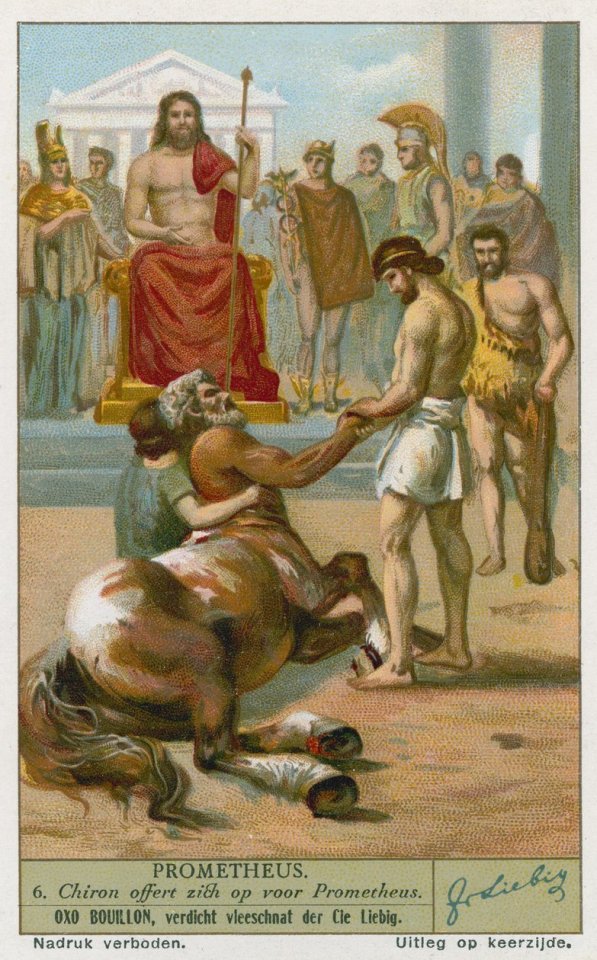
"Chiron sacrifices himself for Prometheus"




Gifs by @thepunisher
106 notes
·
View notes
Text
timeline
@a-chaotic-dumbass @nysus-temple here it is!! also tagging @godsofhumanity because you said something about calydonian boar hunt which i mention ever so briefly. the links will take you to fics i have written about the aforementioned occurrence since i will shamelessly take any chance to plug my writing.


Telamon (22) kills his younger half-brother, so both he and Peleus (19) are exiled by their father. Peleus is taken in by his uncle and marries his cousin. He eventually joins the Calydonian Boar Hunt, and accidentally kills his uncle/father-in-law, resulting in his fleeing for a second time. In this second exile he is accused of attempted infidelity by the King’s wife, whom he shunned. The news reaches his own wife, who kills herself, leaving the throne of Pthia to him. The King chases Peleus for revenge, organizing an attack on him by centaurs on Mount Pelion. Chiron aids Peleus and saves his life. This whole fiasco takes 9 years to unfold.
Peleus’ (28) success during the Boar Hunt results in his marriage to Thetis. A year after the wedding, he joins Jason on the Argo. Thetis gives birth to 6 boys before Achilles is born but they all die in infancy.
Priam (27) and Hecuba (25) introduce Paris (0) into the world and almost immediately abandon him into the wild. So far they’ve had Hector (8), his sister (7), Deiphobus (5) and the twins Cassandra and Helenus (4)
4 years later, Achilles (0) is born and dunked in the Styx; Thetis then leaves Peleus (34).
Phoenix (35) gets exiled and comes Phthia because Peleus (35) is his friend, Achilles (1) is living with his dad, he and childless Phoenix bond.
Patroclus (8) kills his playmate over losing a game of petteia; his father sends him away, Peleus (40) empathizes and takes him in, Patroclus and Achilles (5) meet for the first time (ROUGH SEAS)
Menelaus (16) and Agamemnon (21) seek asylum in Sparta, Clytemnestra (14) is immediately infatuated by Agamemnon, Helen (14) not so much. Castor and Pollux (14) are interested in the stories they have to tell.
Agamemnon (22) leaves Sparta to overthrow Aegisthus (20) in Mycenae; he (23) returns to ask for Clytemnestra’s (16) hand in marriage but she’s already married. He kills Tantalus and son (<1) and gets engaged to her (BLOOD-RED HANDS).
Helen (16) gets kidnapped by Theseus about a month later, the Dioscuri (16) bring her back; Clytemnestra (16) and Agamemnon’s (23) wedding gets pulled forward despite the mourning period out of fear for Clytemnestra’s wellbeing and because she is displaying symptoms of pregnancy. Peleus (43) leaves Achilles (9) and Patroclus (12) to go on a military expedition to Troy with Hercules and Telamon (46). When he returns it’s all he talks about and Achilles becomes obsessed with the idea of Troy. Podarkes/Priam (40) earns his epithet when his father (65) gets killed, Hector (21) has his first experiences with war. Telamon takes Priam’s sister as a concubine and she births Teucer, Ajax is 14 at the time.
Helen (18) gets wed off to Menelaus (20). Odysseus (22) marries Penelope (20), Agamemnon (25) and Clytemnestra (18) already have Iphigenia (1) and she’s heavily pregnant (OLIVE TREE)
Achilles (11) gets sent to Charon as a method of education, by now he and Patroclus (14) are inseparable.
Achilles (13) comes back home from Charon and teaches Patroclus everything he learned.
Helen (25) leaves Sparta with Paris (22) (WATCH THE STARS COLLAPSE), Hector (30) freaks out (GATES OF TROY); Achilles (18) impregnates Deidamia (17); Odysseus (29), Agamemnon (32), and Menelaus (27) come and get him for war (SKYROS); Penelope (27) is left alone with Telemachus (1) (CRAZY FOR YOU) and Orestes (10) and Pylades (12) are sent to Sparta to stay with Hermione (6) for her protection.
Achilles (18) goes to Phthia, his father (52) gives him gifts and weapons, Achilles takes Patroclus (21) and Phoenix (52) with him (SAY YOU REMEMBER ME). At Aulis, Iphigenia (11) is brought in as a supposed bride for Achilles, but she is sacrificed (WEDDING ALTARS AND SACRIFICIAL SHRINES). Electra (10) and Chrysothemis (4) are now alone with their mother.
Achilles (25) kills Andromache’s (35) family and she flees to Troy, where she remeets Hector (37) whom she knows from 29 years prior. They get married and a year later Andromache gives birth to Scamandrius/Astyanax.
#this will continue to change as i figure shit out <3#greek mythology#greek myth#trojan war#iliad#epic cycle#ancient greece#mythology#greek gods#mythos#greek mythos#homer#achilles#patroclus#hector of troy#agamemnon#menelaus#helen of sparta#helen of troy#paris of troy#odysseus#clyetemnestra#thetis#tagammemnon#jason and the argonauts#iliad of homer
95 notes
·
View notes